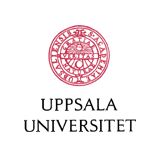|
Robust Feedforward Control Based on Probabilistic
Description of Model Errors
Mikael Sternad
and
Anders Ahlén
Swedish Control Meeting ``Reglermöte'',
Gothenburg, Sweden, November 4-5, 1992.
In Pdf.
- Outline:
-
We present a simple and flexible method for
building performance robustness into the design of linear
filters for open loop
problems. Such problems include signal estimation, state estimation
and feedforward control.
The key is a novel design method for Wiener filters.
It can be regarded as a generalization of Kucera's
polynomial approach.
Here, we briefly describe how the method is applied to
the design of robust feedforward
links from disturbances or from command signals.
- Abstract:
-
Can the performance robustness of a feedforward controller be improved?
For any such compensator, Bodes relative sensitivity function is
=1. This means that a x % parameter deviation will result in a
y % deviation of the transfer function at a given frequency,
regardless of the applied filter.
However, the effect of the y % deviation
on e.g. the step response
will very much depend on the magnitude of the transfer function.
(The absolute sensitivity
function describes this effect,
while the commonly used relative
one misses it completely!)
When the performance of a nominal LQG controller
is sensitive to model errors,
our robustified control achieves a significant
(absolute) sensitivity reduction.
There is only a small performance deterioration in the nominal
case, if the assumed modelling errors are not extremely large.
Modelling errors will be described by sets of systems,
parametrized by
random variables with known covariances.
Robust control is then obtained
by minimizing a quadratic criterion, averaged both
with respect to model errors and the noise.
A polynomial solution, based on
averaged spectral factorizations and a Diophantine equation,
is presented.
Robust design turns out to be no more
complicated than the design of
an ordinary LQG feedforward controller.
The proposed method is very simple to use,
and it also has
two other advantages.
First, probabilistic
descriptions of model uncertainties may have
soft bounds .
These are more readily obtainable
in a noisy environment than the hard bounds required for
e.g. minimax design. Furthermore, not only
the range of uncertainties, but also their likelihood is
taken into account;
common model deviations will
have a greater impact on a controller design than do
very rare ``worst cases''.
The conservativeness is thus reduced,
compared to worst case design.
- Related publications:
-
Paper in Automatica 1993,
with robust Wiener design and a feedforward design example.
Paper in IEEE Trans. AC 1995,
on robust MIMO Wiener filters and feedforward controllers.
PhD Thesis
by Kenth Öhrn May 1996.
Paper in Automatica 1988,
on nominal LQG design of feedforward regulators.
|
Related research
|
Main entry in publ. lists
|
This material is presented to ensure timely dissemination
of scholarly and technical work. Copyright and all rights
therein are retained by authors.
All persons copying this information are expected to
adhere to the terms and constraints invoked by each authors
copyright. This work may not be reposted
without the explicit permission of the copyright holders.
|

